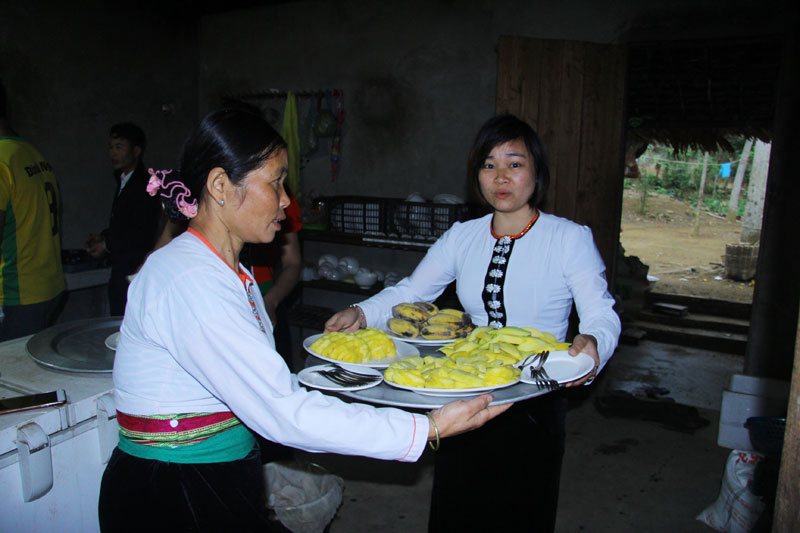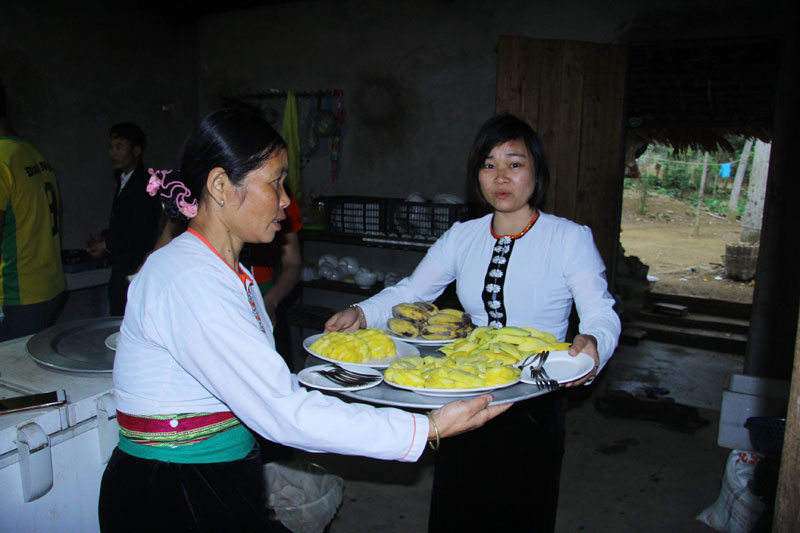



Da Bia hamlet is home to 28 Muong ethnic households with cultural space and landscapes kept intact. It has come up with a new idea to develop community-based home-stay services, attracting more and more visitors to the locality to improve local income.
We stopped at Ngoc Nhem lodging house, one of
the home-stay suppliers in Da Bia hamlet. Though local residents are new to
this kind of business, their services quite meet tourists’ demand. Only 15-minute
walk from the lake, the lodging house lies amidst forest greenery on a wide
yard, offers clean and tidy rooms that could accommodate tens of guests. The
yard is big enough for dining and music performances. From the window, one
could overlook the vast and breezy lake. The family of Ms Nhem and Da Bia
people are friendly and always give smiles when meeting strangers.
In the hamlet, local residents will guide
visitors how to join production, learn about local lives and explore travelling
experience in the Da river. They could go rowing and swimming, and catch fish
and shrimp. Touching on the crystal-clear water on boat, one could see
thousands of small fish swimming freely along rippling wave foams. They could
visit Oi Noi market in Tien Phong commune, Ke market in Hien Luong commune, Hat
market in Yen Hoa commune, Trang Ang market in Vay Nua commune, Cua Nanh market
in Suoi Nanh commune, Moc market in Dong Nghe commune where local specialties
such as forest honey bee, hill chicken, dried fish, medicinal plants, bunches
of bananas and forest vegetables are available, or go boating to Sung island in
Tien Phong district.
It is unforgettable to enjoy simple local food
such as steamed anabas and carp with dill and cilantro that goes along with
fish sauce and aromatic Doi seed (a rare spice from the northwestern
mountainous area). Visitors could choose many locally-farmed special dishes
such as mountain bamboo shoot, fern vegetables, boiled papaya leaves, sesame
and salt, boiled chicken meat, five-coloured glutinous rice, fish bowels.
Waken up by chirping birds in mild cold autumn
climate, one could see clouds drifting around the mountain top amidst the
peaceful lake./.